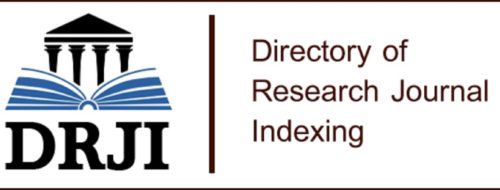Theoretical reflection on epistemology and epistemological breaks in accounting and administrative sciences
DOI:
https://doi.org/10.56124/corporatum-360.v7i14.008Keywords:
epistemology, epistemological rupture, scientific researchAbstract
The research explores epistemological ruptures, understood as significant shifts within a specific mode of thinking or rationality, particularly in the context of university education in the fields of Accounting and Management. The main objective of the study is to analyze and identify the factors that trigger or motivate epistemological ruptures, the ways in which they manifest in practice, and the opportunities university professors have to experience them in thesis work. Additionally, it seeks to determine their practical manifestations and evaluate the possibilities for professors to undergo these experiences in thesis projects within the fields of Accounting and Management at public and private universities in Ecuador. The results from the analysis of research papers conducted in Ecuadorian universities led to the development of a five-stage framework that guides an epistemological rupture: crisis, transduction, critique and reflection, understanding, and finally, the adoption of the new approach. Understanding this process through narratives helps facilitate the development of new epistemological ruptures, fostering the formation of researchers without the need to go through all the traumatic steps typically associated with these processes, thus contributing to the training of researchers in Ecuadorian universities.
Downloads
References
Ashby, W. (1965). An introduction to cybernetics. Chapman and Hall.
Bachelard, G. (1938). La formación del espíritu científico . Vrin.
Baena, P. (2017). Metodología de la investigación . Grupo Editorial Patria.
Bernal, C. (2010). Metodología de la investigación. Pearson.
Bourdieu, P., Chamboredon, J.-C., & Passeron, J.-C. (2002). El Oficio de Sociólogo: Presupuestos epistemológicos. Buenos Aires: Siglo XXI Editores Argentina S.A.
Brown , L. (2019). Empirical and Analytical Methods in Social Sciences. Cambridge University Press.
Bunge, M. (2003). Epistemología: Curso de actualización . Siglo XXI.
Chalmers, A. (1982). ¿Qué es esa cosa llamada ciencia? Buenos Aires: Siglo XXI.
Cohen , N., & Gómez Rojas, G. (2019). Pensar el para qué de la Metodología de la investigación. Un recorrido por la producción de los datos y los diseños. Revista Latioamericana de Metodología de las Ciencias Sociales, 12(No. 2, 2022), 202-225.
Durkheim, E. (1973). Las prenociones como obstáculo epistemológico. Buenos Aires: Schapier.
Foucault, M. (1970). El orden del discurso. Tusquets.
García, P. (2018). Epistemología y conocimiento en las ciencias sociales. Editorial Académica.
Gardner, H. (1985). The mind is new science: A history of the cognitive revolution . Basic Books.
Giddens, A. (1997). Sociología. Alianza Editorial.
Green, T. (2021). Techniques of objectification and prenotions . Philosophical Studies.
Haugeland, J. (1988). Artificial intelligence: The very idea. MIT Press.
Johnson, R. (2020). Epistemological surveillance in social sciences. Journal of Social Research.
Kvitka, A. (1988). Artificial intelligence and expert systems. John Wiley angd Sons.
Lange, O. (1981). Introduction to economic cybernetics . Elsevier.
Lazarsfeld, P. (1973). Metodología de las ciencias sociales.
Martínez , L. (2020). La transformación del conocimiento en la investigación social . Ediciones Universitarias.
Merton, R. K. (1965). Eléments de théorie et de méthode sociologique. Paris: Plon.
Minsky, M. (1986). The society of mind. Simon and Schuster.
Norman, D. (1987). The psychology of everyday things. Basic Books.
Piaget, J. (1960). La equilibración de estructuras cognitivas. Siglo XXI de España Editores S.A. .
Popper, K. (1970). La lógica de la investigación científica . Tecnos.
Sánchez P., R. (1984). La investigación científica en ciencias sociales (Estructura dialogal, campo de lucha ideológica y factor del proyecto ético-político de una comunidad). Revista Mexicana de Sociología, 129-160.
Scavino, D. (1999). La Filosofía Actual: Pensar sin certeza. Buenos Aires: Paidos.
Simon, H. (1984). The sciences of the artificial . MIT Press.
Smith, J. (2018). Scientific Methods in Exact Sciences. Oxford University Press.
Wiener, N. (1985). Cybernetics: Or control and communication in the animal and the machine (2 nd ed.). MIT Press.
Downloads
Published
How to Cite
Issue
Section
License
Copyright (c) 2024 Revista Científica Arbitrada Multidisciplinaria de Ciencias Contables, Auditoría y Tributación: CORPORATUM 360 - ISSN: 2737-6443.

This work is licensed under a Creative Commons Attribution-NonCommercial-ShareAlike 4.0 International License.


5.jpg)













